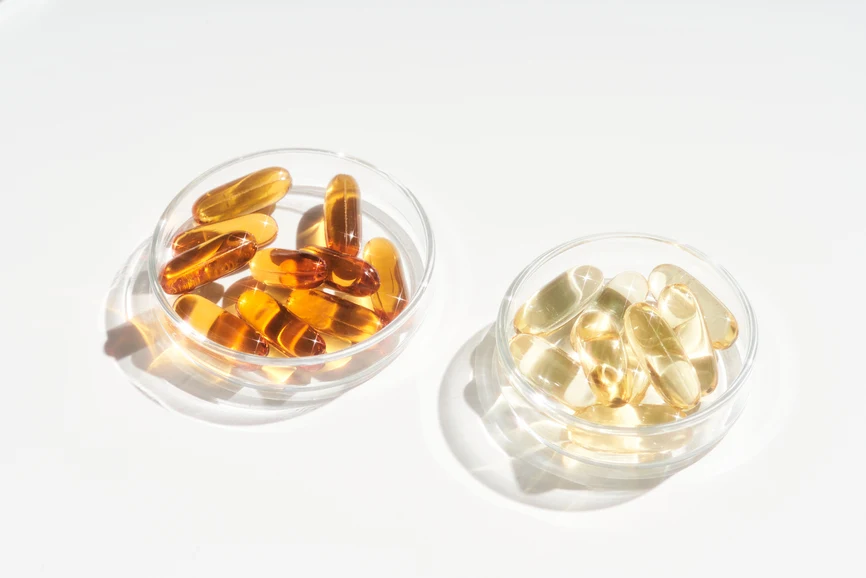Signs and Symptoms of Menopause: Everything You Need to Know
5 minute read

Ask a roomful of women what signs of menopause they’ve experienced, and we bet you’ll get countless and varied replies.
For one, her menopause symptoms were on the mild side: Intermittent bouts of perspiration; an occasional sleepless night. And then, after a full year without a menstrual period, she realized, “Hey. I’m in menopause. That’s it?!”
But it’s more likely you know someone (maybe even you?) whose menopause symptoms checked all the boxes: blazing hot flashes, crazy-making mood swings, soaking night sweats, sudden weight gain, erratic menstrual cycles, brain fog and… shall we go on?
That’s menopause. One word, many descriptions. Although the biological process and menopause definition is the same for everyone – the “cessation of menstruation” — menopause symptoms are different for everyone.

Menopause symptoms can last for 8-plus years
• You officially reach menopause after going 12 consecutive months without a menstrual period. Menopause can also happen very suddenly when the ovaries are removed surgically or when women are undergoing chemotherapy or radiation.
• But, before you reach the end of the road, there’s a lot to navigate.
• For most women, menopause does not come on suddenly. Instead, it’s a gradual process preceded by a transitional period known as perimenopause.
• Most women start the menopausal transition, or perimenopause, in their early to mid 40s. (Technically you’re not menopausal until your last period plus a year.)
• Signs of menopause can last from as little as two to as many as ten years.
• Twenty percent of women have essentially no symptoms of menopause (lucky ladies!), while another 20 percent have severe symptoms (sorry, ladies!)
Menopause: A Roadmap
Since you’ll be spending a lot of time on this thoroughfare, it’s good to know the rules.
Green light: No signs of menopause
All systems go
• Your menstrual cycle is regular and flowing at a steady clip. Regular cycles means you are still ovulating regularly and need reliable birth control (unless you really like the idea of a new baby).
Yellow light: Yield; Menopause Approaching
Welcome to perimenopause
• Your period is going haywire, with cycles sometimes coming too soon and lasting too long. This is a sign that your ovaries are starting to act up. The ovaries’ production of estrogen can be too high one month and too low the next, hence those crazy out of control periods.
• Hot flashes are one of the most common warning signs of perimenopause for 80 percent of North American women.
• Because hormones are in a state of flux, your period continues to flow, but may be different than before.
• Some months, your ovaries won’t release an egg at all, and you’ll skip a period entirely.
• Other months, your cycle will be longer or shorter, or heavier or lighter than normal.
• Since you’re still ovulating (albeit sporadically), you can still get pregnant.

Red Light: Stop Time
It’s time to call it a day. (Or call it menopause.)
• Your periods have stopped. Permanently. It’s been a full year since your last period.
• The average age of menopause is between 45 and 55 for most women (although it’s possible for women in their 40s or even their 30s to experience menopause).
• Once you’re in menopause, you can’t get pregnant, since your ovaries are not releasing any eggs. But some experts advise menopausal women to continue using birth control for a full year or two, just in case.
Signs and symptoms of menopause vary for every woman. Here are some of the most common symptoms of menopause you might experience:
Mood Changes
Anxiety, depression and maybe even all-out panic: Some women develop mood disorders strong enough to make them feel like hiding under the covers (or bad enough to send their loved ones running for cover). Other women might feel a bit “down” or “sub-par.” Whichever way you slice it, most of these symptoms result from hormonal fluctuations, and generally resolve – you’ll return to your “sane” self – once your hormones become more even-keeled (after you pass through menopause).
If you have a history of PMS and postpartum depression, you’re more likely to deal with symptoms like mood swings and irritability during menopause.
Hot Flashes
Imagine being wrapped tightly in a heating pad turned to its highest setting. That’s a hot flash — a rapid, spontaneous feeling of extreme warmth, often to the point of profuse sweating. Most typically, a hot flash begins in your scalp or face, then spreads to your neck and chest (but it can reach all the way down to your toes). Afterward, you might feel chilled. (That’s your body trying to cool itself off.) Now is a good time to consider dressing in layers.
Hot flashes and menopause really go hand in hand. A hot flash can last from a couple of minutes to ten very long minutes. Some women get a hot flash once or twice a day, while others will experience them once or twice an hour. They’re also known to be rather tenacious and appear all throughout the day and night.
When can you return to wearing your favorite wool turtleneck? It depends. Sometimes, the flames will burn themselves out after six to 24 months. But not always: Hot flashes and night sweats can be stubborn, and keep roaring for up to 11 years for some.
Vaginal Dryness
Our vaginas need estrogen to keep our tissues healthy, strong and elastic, and to help provide lubrication for sex. But as estrogen levels drop, so does vaginal moisture. The fallout? Itching. Burning. Chafing. An increased risk of yeast and other infections, due to altered levels of pH. And oh, there’s sex (or is there?). A dry vagina can make intercourse very uncomfortable, and may even lead to tearing and bleeding.
Fortunately, there are things to ease your discomfort, like over-the- counter vaginal lubricants and moisturizers, or low-dose prescription estrogen vaginal creams and inserts.
Brain Fog
Searching for your keys, or for the name of your favorite friend? Memory and concentration issues are common during menopause. But those trips down memory lane and tip-of-the-tongue moments are temporary, says experts. Your brain will report back for duty with neurons firing normally once you move through menopause.
Sleep Woes
If you’re chasing your zzzz’s, you’re running that race with the many other women of menopause. Hot flashes and night sweats make not only make counting sheep an exercise in futility; but they can also increase your risk of obstructive sleep apnea, a condition that causes interrupted breathing during the night.
A cool and quiet room, a relaxing bedtime routine, and deep breathing exercises can help reclaim your rest, and reduce any symptoms of menopause fatigue. So can exercise – but make sure you do it at least three hours before bedtime, or else it can have the opposite effect.
Tipping the Scales
Hormonal changes of menopause make weight gain more likely around now. And those extra pounds are usually targeted around your mid-section, rather than your hips and thighs. “Menopot,” or “Muffin Top” — call it what you will, but it’s no joke: This fat (known as “visceral fat”), can be dangerous to your health and increase the risk of problems like type-2 diabetes, heart disease and breathing issues. That’s because it sits deep within your abdomen, closer to your internal organs.
Nevertheless, those two old standbys — moving more and eating less — are your best tools in the war against weight gain.

How do you deal with your menopause symptoms?
We all have our favorite ways of coping with the stubborn signs of menopause. Aside from regular menopausal treatment, here are just a few supporting recommendations:
• Dressing in layers
• Essential oil
• Supplements
• Exercise
• Chocolate
• Talking to friends
• Blasting the air conditioner
Experts agree that for the vast majority of healthy women, supplementing your body's natural hormones is the safest and most effective treatment to ease the vasomotor symptoms of menopause, including hot flashes and night sweats. Head to our product page to check out your options. A menopause-trained doctor will review your choices to make sure you get the right treatment.
Sources
https://www.mayoclinic.org/diseases-conditions/menopause/symptoms-causes/syc-20353397
https://www.mayoclinic.org/healthy-lifestyle/womens-health/in-depth/belly-fat/art-20045809
https://www.mayoclinic.org/diseases-conditions/perimenopause/symptoms-causes/syc-20354666
https://www.mayoclinic.org/diseases-conditions/menopause/symptoms-causes/syc-20353397
https://www.ncbi.nlm.nih.gov/pmc/articles/PMC3955044/https://pubmed.ncbi.nlm.nih.gov/31378291/
https://my.clevelandclinic.org/health/diseases/15224-menopause-perimenopause-and-postmenopause
https://www.womenshealth.gov/menopause/menopause-and-your-health
https://www.hopkinsmedicine.org/health/wellness-and-prevention/how-does-menopause-affect-my-sleep
Subscribe
Go ahead, you deserve to